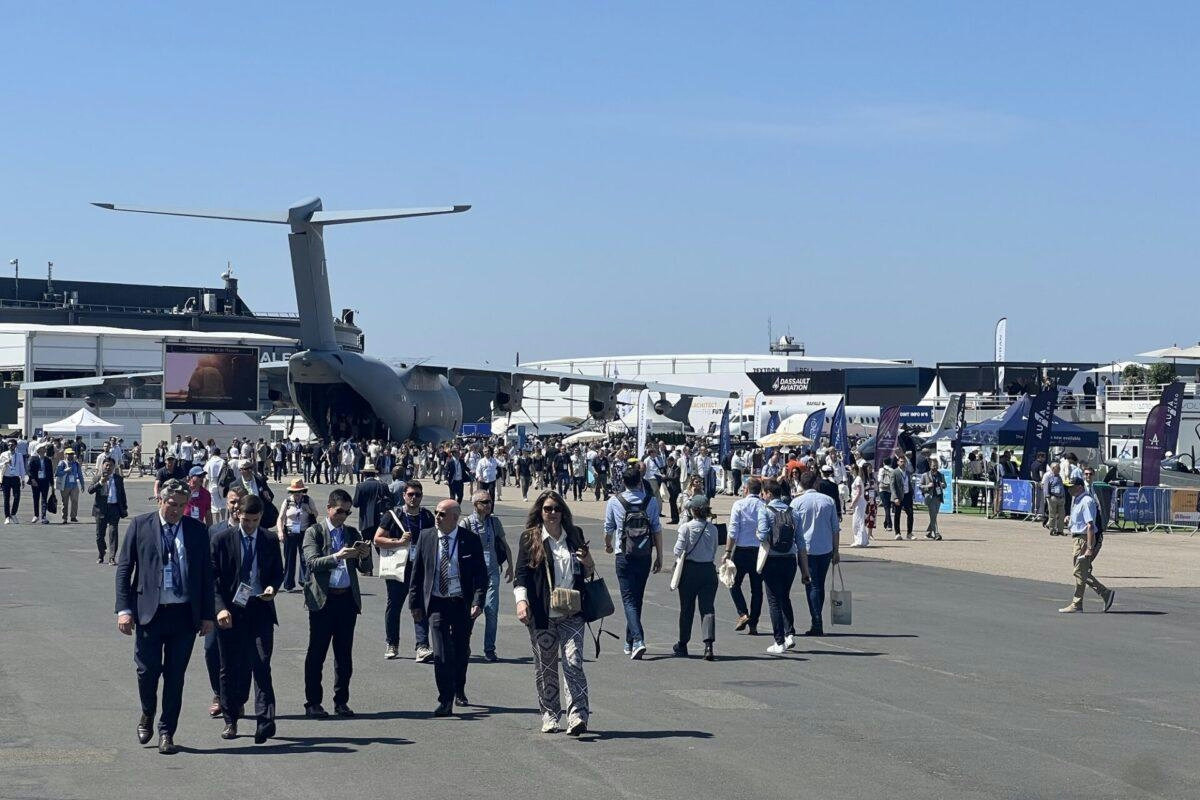أيروجيني — مساعدك الذكي للطيران.
الرائج الآن
Categories
Key Sustainability Innovations Unveiled at Paris Air Show 2025

Key Sustainability Innovations Unveiled at Paris Air Show 2025
The Paris Air Show 2025 represented a defining moment for the aviation sector, marking a transition from aspirational goals to tangible action as manufacturers, airlines, and energy providers intensify efforts to achieve net-zero emissions. This year’s event conveyed a decisive message: incremental progress is insufficient, and bold measures are essential to align the aviation industry with global climate objectives.
Set against a backdrop of heightened geopolitical tensions and ongoing debates surrounding issues such as Trump-era tariffs, the show balanced an increased focus on defense and security with a pronounced emphasis on sustainability. As the world’s largest aerospace gathering, the Paris Air Show convened industry leaders, innovators, and policymakers in June to showcase emerging technologies, significant commercial orders, and cross-sector collaborations aimed at mitigating aviation’s environmental impact.
Sustainability at the Core of Industry Strategy
Facing mounting scrutiny over its carbon footprint, the aviation industry confronts the dual challenge of accommodating growing demand for air travel while pursuing ambitious net-zero targets. The 2025 airshow underscored a fundamental shift: sustainability has become central to business strategy, investment decisions, and innovation efforts.
Key developments highlighted at the event included the rapid adoption of sustainable aviation fuel (SAF) as a lower-carbon alternative, significant advances in hydrogen and electric propulsion technologies that expand decarbonization potential, and a renewed focus on enhancing efficiency in regional and short-haul operations to reduce fuel consumption and emissions.
Fleet Renewal and Enhanced Efficiency
Improving aircraft efficiency and curbing fuel consumption remain pivotal to airlines’ net-zero strategies. The show witnessed substantial new orders, with Airbus securing nearly $21 billion in deals. Notably, a landmark agreement with VietJet for 100 A321neo aircraft—jets renowned for their range, capacity, and improved fuel efficiency—demonstrated the industry’s commitment to cleaner fleets. Riyadh Air’s order for 25 Airbus A350-1000s, complemented by 50 Rolls-Royce Trent XWB-97 engines, further emphasized this trend.
Sustainability is also influencing pilot training practices. France’s national civil aviation school, ENAC, placed an order for 30 training aircraft from Elixir Aircraft, featuring advanced carbon composite construction that reduces fuel consumption by up to 70 percent compared to traditional trainers.
Breakthrough Technologies and Market Dynamics
Innovation extended beyond new airframes to propulsion systems and aerodynamic design. Airbus unveiled a world-record 1.2 megawatt aviation fuel cell system, marking a significant advance toward hydrogen-powered flight, alongside the eXtra Performance Wing, which promises fuel savings of up to 10 percent. MagniX introduced a high-energy-density battery (400 Wh/kg), bringing electric and hybrid-electric regional flights closer to commercial viability.
Electric aircraft such as Beta’s Alia CX300 attracted attention for their potential, while also highlighting persistent challenges including high initial costs and technological barriers that impede widespread adoption. Market responses indicate that these innovations provide a competitive advantage, prompting rivals to accelerate research and development efforts, as exemplified by Liebherr’s folding wingtips designed for the Boeing 777X.
Rotorcraft innovation was also prominent, with the Airbus Racer helicopter demonstrator achieving fuel consumption reductions of 20 to 30 percent compared to conventional models.
Sustainable Fuels and Industry Collaboration
Sustainable aviation fuel emerged as a central theme and was widely recognized as the most immediate and effective lever for emissions reduction. Long-term agreements, such as TotalEnergies’ 15-year partnership with Quatra, reflect growing industry confidence in SAF’s critical role in the transition to greener aviation.
As the sector navigates complex technological, financial, and geopolitical challenges, the Paris Air Show 2025 underscored that sustainability is now a defining force shaping the future trajectory of global aviation.

Emirates Unveils Cabin Design for New Boeing 777X

Eighteen Years On, the Airbus A380 Remains Central to a $34 Billion Airline

How a boom in luxury airline seats is slowing down jet deliveries

Navitaire Outage Attributed to Planned Maintenance

DigiYatra Debuts Outside Aviation at India AI Impact Summit

Vietnam Orders Strengthen Boeing’s Commercial Outlook

Airbus Signals Uncertainty Over Future A400M Orders

JobsOhio Awards $2 Million Grant to Hartzell Propeller for Innovation Center

Collins Aerospace Tests Sidekick Autonomy Software on YFQ-42A for U.S. Air Force CCA Program

How the Airbus A350-1000 Compares to the Boeing 777
